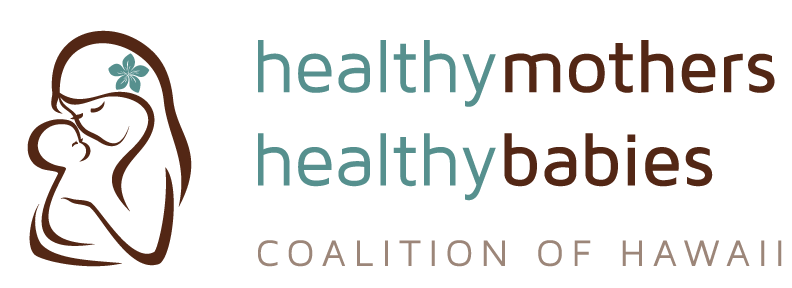Healthy Eating During Pregnancy
It is important to have a healthy diet while you are pregnant to support your baby’s growth and development. Follow these guidelines to make sure you and your baby get the right nutrients throughout your pregnancy.
- Take a Prenatal Vitamin
- While you are pregnant, you have a higher need for certain vitamins. Having a healthy diet and taking a prenatal vitamin will ensure you and your baby get the nutrients you need during a healthy pregnancy.
- Choose a Variety of Foods from Each Food Group
- Eat a variety of foods including fruits, vegetables, dairy products, grains and protein-rich foods.
- Talk about your Calorie Needs
- In general, most pregnant women only need around 300 extra calories per day to support their baby’s growth. This need can be met with one additional healthy snack such as a glass of skim milk and four fig bars. However, the exact number of calories you need depends on how much you weighed before you became pregnant. Talk to your health care provider to determine how many extra calories you may need.
- Limit Fatty Foods and Sweets
- Fatty foods and sweets such as doughnuts, chips, soda and candy have a lot of calories, but not enough nutrients to help your baby grow properly.
Prenatal Nutrition: Questions & Answers
Is it safe to drink coffee or other caffeinated drinks during pregnany?
Moderate levels of caffeine have not been found to have a negative effect on pregnancy. Limit your caffeine intake to no more than 200 mg per day (about one small coffee).
Is it safe to drink alcohol during pregnancy?
No. There is no known safe amount of alcohol a woman can drink while pregnant. If you drink during pregnancy, you place your baby at risk for fetal alcohol syndrome, the leading known cause of mental retardation and birth defects.
How much water should I drink while I am pregnant?
It is important to stay hydrated throughout your pregnancy. Try to drink eight 8-ounce glasses per day (64 ounces total) of fluid, plus one 8-ounce cup for each hour of light activity.
How much weight should I expect to gain throughout my pregnancy?
The amount of weight you should expect to gain depends on what your weight and BMI (body mass index) were before you got pregnant. You should gain:
- 28-40 pounds if you had a BMI of less than 18.5
- 25-35 pounds if you had a BMI of 18.5-24.9
- 15-25 pounds if you had a BMI of 25-29.9
- 11-20 pounds if you had a BMI of 20 or higher
I cannot afford to buy the foods I need for a healthy pregnancy. Where can I go for help?
If you are pregnant and cannot afford to buy the foods you need to have a healthy pregnancy, the Special Supplemental Nutrition Program for Women, Infants and Children (WIC) may be able to help you. To see if you qualify, call (808)586-8175 (Oahu) or 1-888-820-6425 (neighbor islands), or visit http://hawaii.gov/health/family-child-health/wic for more information.
Making Healthy Choices in Each Food Group
Try to eat a variety of the foods listed below while you are pregnant. These are some of the best choices to help you get the nutrients you need throughout your pregnancy:
Vegetable Group
Choose these: Carrots; sweet potatoes; pumpkin; spinach; cooked greens (such as kale, collards, turnip greens and beet greens); winter squash, tomatoes/tomato sauces; red sweet peppers/
Benefits: These vegetables all have vitamin A and potassium.
Dairy Group
Choose these: Fat-free or low-fat yogurt; fat-free (skim) milk; low-fat (1%) milk; calcium-fortified soy milk.
Benefits: These all provide calcium and potassium. Make sure your choices are fortified with vitamins A and D.
Fruit Group
Choose these: Cantaloupe; honeydew melon; mangoes; prunes; bananas; apricots; oranges; grapefruit; 100% prune juice; 100% orange juice
Benefits: These fruits all provide potassium and many provide vitamin A.
Grains Group
Choose these: Fortified ready-to-eat cereals; fortified cooked cereals.
Benefits: Cereals fortified with iron and folic acid will help your baby develop properly.
Protein Foods Group
Choose these: Beans and peas (such as pinto beans, soy beans, white beans, lentils, kidney beans and chickpeas); nuts and seeds (such as sunflower seeds, almonds, hazelnuts, pine nuts, peanuts and peanut butter); lean beef, lamb and pork; oysters; mussels; crab; salmon, trout, herring, sardines and Pollack.
Benefits: All of these foods provide protein your baby needs for proper growth and development. Beans and peas also provide fiber, potassium and iron.
DO NOT EAT deli meats, shark, swordfish, king mackerel or tilefish while you are pregnant, and limit white (albacore) tuna to no more than six ounces per week. These fish contain high levels of mercury, a chemical that can harm your baby and stop him or her from developing properly.
Food Safety
Food safety is especially important for pregnant women. During pregnancy, both you and your baby have a greater chance of getting sick from eating unsafe food. Follow these guidelines to help you protect you and your baby from unsafe foods:
Clean: Wash hands and surfaces often.
Separate: Do not cross-contaminate. For example, when cutting meat, be sure to wash the knife before cutting vegetables.
Cook: Cook to a proper temperature by using a food thermometer.
Chill: Refrigerate promptly.
Foods to Avoid During Pregnancy:
- Raw/unpasteurized milk, cheese and juice
- Raw or undercooked animal foods (such as seafood, meat, poultry and eggs) or deli meats
- Raw sprouts
- Fish with high levels of mercury:
- Shark
- King mackerel
- Swordfish
- Tilefish
- Alcoholic beverages
- LIMIT white (albacore) tuna to no more than six ounces per week
- LIMIT caffeine intake to no more than 200 mg per day
Learn More



